5 Casting Secrets Hollywood Kept Buried Forever

When an actor lands a role, you're probably going to hear about it long before the movie comes out, and even if the movie never ends up being made at all. They have people whose job it is to spread this news worldwide, and a vast entertainment media industry exists to pump this information directly into your brain. But sometimes, casting isn't a matter of publicity at all. Everyone involved joins a conspiracy of silence -- until the truth finally comes out ...
The Voice Of Bambi Had To Keep His Role A Secret When He Became A Drill Instructor
Despite being some of the most famous movies of all time, classic Disney animated films did a pretty terrible job of making their cast into household names. Sure, on occasion, the films will go the route of choosing an A-list actor to work on an animated character that was deliberately designed for them. But a majority of the time, voice actors remain relatively anonymous. Can you name, without looking it up, who voiced the title character in The Hunchback of Notre Dame? Or Aladdin (it was Steve from Full House), or The Little Mermaid, or Beauty OR the Beast?
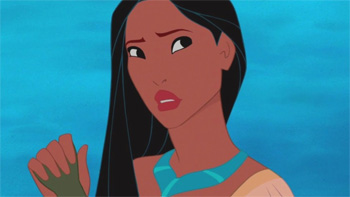
At least some of the time, this was intentional. Back when Disney released Snow White And The Seven Dwarfs, they didn't even credit the performers. They blocked Snow White's voice actress, Adriana Caselotti, from media appearances in the name of maintaining the magic of Snow White the character. The leads in Cinderella, Sleeping Beauty, and Lady And The Tramp all ended up floundering in obscurity and suing Disney for royalties. Meanwhile, if you were just a kid when you did voice work for Disney, no one would ever know who you were. And that suited Donnie Dunagan just fine.
Donnie Dunagan voiced young Bambi. I'm not going to recap all of Bambi for you, but if all you know about the film is Bambi calling after his mother after she's been shot into venison and a head mount, perfect. That was Donnie Dunagan. Dunagan had few previous acting gigs, and voicing Bambi brought him no additional fame. It would be his last role. His family burned through their Disney money, and by age 13, Dunagan was working as a lathe operator.
Wait, didn't I say Dunagan liked anonymity, rather than him being screwed into a life of misery? Right: Because at 18, Dunagan joined the Marines, and he now kept his Disney resume a guarded secret so that the other recruits wouldn't mock him mercilessly. You can't become a grizzled military man if everyone thinks you're baby Bambi. And boy, did Dunagan become a grizzled military man. He was the youngest ever drill instructor, served three tours in Vietnam, and received a Bronze Star and three Purple Hearts. He retired as a major.
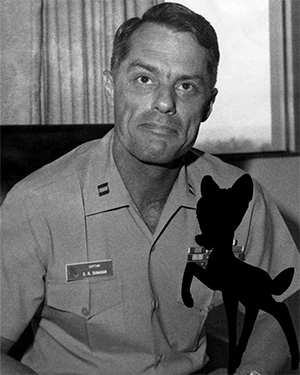
It had been 30 years since Bambi by this time, and he maintained the secret for almost another 30 years, right up until a journalist tracked him down. He didn't even tell his wife. Dunagan is still around today, so maybe he'll get a cameo in Bambi's "live-action" remake. He could voice Bambi's Liam Neeson-like uncle who goes after the hunter for revenge.
No One Knew Max Von Sydow Was InThroughout the early 2000s, we kept hearing rumors that the original Ghostbusters cast would reunite for a third movie. Despite occasional promises, the project never did seem to come together, probably because it would still be a few more years until Hollywood officially decided every property must be revived till the Earth explodes. But in 2009, we did get a Ghostbusters video game. It featured the voices of all four of the original team. And also Max von Sydow.
The original actors were reprising their movie roles, much as they had in various media throughout the last couple of decades (this would be the final Ghostbusters appearance for Harold Ramis, who'd pass away in 2014). As for von Sydow, he was doing the voice of Vigo, who'd appeared in Ghostbusters II. They had a pretty good reason for not bringing in Wilhelm von Homburg, who'd played Vigo on the big screen. "Unfortunately, that actor had passed away," explained the game's director pre-release, "so we'll have a sound-alike."
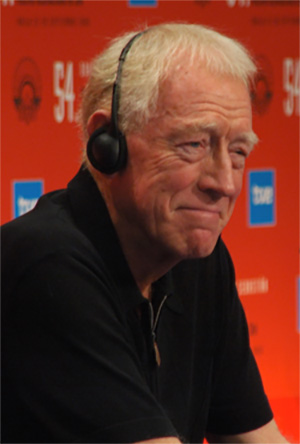
For a second-choice understudy, von Sydow was a pretty big name. This was Max von Sydow of The Seventh Seal, Max von Sydow of The Exorcist. More recently, you might know von Sydow, who died this past March at age 90, for Game Of Thrones and The Force Awakens. Players then noticed that calling him a "sound-alike" was kind of an understatement. Vigo, in the game, sounded exactly like Vigo in the movie, even when delivering new lines. So if von Sydow was voicing game Vigo, what did that say about original Vigo?
Fans badgered producers and uncovered the truth: Von Sydow had voiced the original Vigo after all. Von Homburg played the role and did the voice originally, but then the production brought in the big guns and had von Sydow dub over them. Von Sydow wasn't credited, and even von Homburg had no idea his voice work was being dubbed over until he attended the premiere and heard the final cut. He ran out, furious. Even many who worked on the game didn't know why von Sydow was brought on board. Hell, maybe even von Sydow forgot the role was his. When you have 163 acting credits, they tend to run together after a while.
Charlie's Actor FromHow many cast members can you name from the classic film Willy Wonka and the Chocolate Factory? There's Gene Wilder, of course, playing the part of William D'Angelo Wonka. And then there's ... uh, hold on, give me a sec, there's ... yeah, we don't know anyone else. Which is at least a little surprising? I don't expect you to be able to identify Augustus Gloop's German mother or Oompa Loompa number three, but you'd think that the kid who played Charlie might have gone on to make a name for himself.
Charlie Bucket was played by Peter Ostrum, who came with zero prior experience but landed the role thanks to talent agents seeing him act in a sixth-grade play. When filming wrapped up, the producers offered him a three-picture deal. Peter turned it down. He wanted to continue acting, but he also wanted the freedom to choose roles rather than be tied down. It's kind of like an alternative ending where Charlie turns down Wonka's offer because he wants the freedom to choose which chocolate factory he gets to run. And, sure enough, Peter never appeared in a movie again.
He did study film, and he auditioned unsuccessfully for plays such as Equus. You know Equus, that play about wanting to fuck horses, featuring your favorite actors offering live full-frontal nudity? Well, in the process, Peter realized his true passion: flashing people. Wait, no. His passion turned out to be horses. And he became a veterinarian to care for horses. He moved to a town of 3,500 and took care of the horses and cows there.
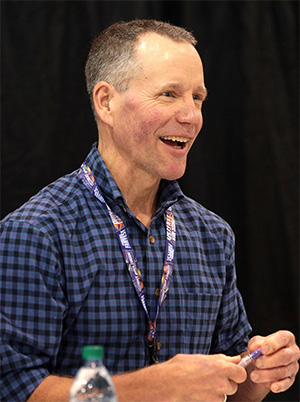
Like Donnie Dunagan, Peter didn't even tell his wife about his Hollywood history at first. He only revealed it to her when she was about to meet his mother, in case Ma Ostrum immediately broke out the photo album. Sometimes, when accused of playing Charlie, he'd claim people were mixing him up with his brother. But after a few decades, he gave in and came out with the truth and said he'd take questions -- from children, for just one day a year. Whichever child is still alive at the end of the Q&A session receives a free cow.
The People Behind Max Headroom Worked To Hide That There Was An Actor Behind The Character
Depending on how old you are, you might not know exactly where Max Headroom came from but will still recognize him as a meme. A lot of stuff from the '80s is like that. For instance, millions of people recognize the Scanners head explosion without having seen Scanners. One theory states that there was never actually a movie in which John Cusack holds up a boombox outside a lover's home; filmmakers who were alive in the '80s have all conspired to pretend such a film existed, to have a stock reference to throw into their movies and parodies.
Before he was popping up in Pixels and Eminem videos, Max Headroom debuted in a relatively obscure British TV movie called Max Headroom: 20 Minutes into the Future. Max, the character, was an evil network's computer-generated substitute news anchor. The whole movie was just an excuse to introduce the public to Max, so the UK's Channel 4 could use him as a host for a music video show. That show ran for three years; then, Max got a separate series in the US while also appearing as a spokesman in a bunch of ads.
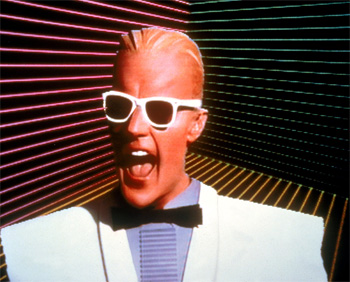
In all these appearances, Max was performed by actor Matt Frewer. But the shows didn't credit Frewer, and they forbade Fewer from identifying himself as a guy playing the part. The conceit was that Max Headroom was entirely computer-generated, just like the in-universe character had been in the original movie, even if he was voiced and scripted rather than controlled by dystopian AI. No one got to appreciate the impressive work of the prosthetics team or Frewer's four-hour stints in the prosthetics chair because the show's producers forbade staff from submitting the show's makeup effects for awards.
But they did submit Max for Best Graphics at the BAFTAs. And they won. Some people genuinely believed Max was totally CGI. It was baffling. Computer graphics were nowhere near good enough in the '80s (or even in the '90s) to make a character that human. Max's creators even tried computer graphics at first, but they found that it was impossible to pull off.
Be thankful that you live today, in the true information age. If any producers try that shit on us now, you'll be seeing online behind-the-scene photos of the actor covered in rubber smiling in front of a green screen before the show even premieres.
For Years, The Simpsons Hid Michael Jackson's Voice Credit -- And His Secret Writing Credit
The overall joke of the classic Simpsons episode "Stark Raving Dad" is the family has a heartwarming encounter with "Michael Jackson," who turns out just to be a guy named Leon, from Jersey. The meta-joke is the audience believes they're watching the real Michael Jackson guest star, but they turn out to have been watching an impersonation credited to the actor John Jay Smith. Still, many viewers remained adamant that it was Jackson doing the voice. Lots of comedians talk like Jackson in bits, but it's hard to imitate his singing voice perfectly. Leon sings three songs: an original ("Happy Birthday, Lisa"), a "Ben" parody, and just plain "Billy Jean."

If actors could sing like this, they'd be singers.
Those viewers were right ... and also wrong. Leon's speaking voice really was Jackson, but the singing voice wasn't. Jackson volunteered to be on the show, personally phoning both Matt Groening and James Brooks out of the blue. And he sang all the episode's songs in the studio, along with all the dialog. But the final singing vocals were an impersonator, Kip Lennon. Groening once said Jackson's label demanded this. Another time, producers claimed Jackson insisted on it as a practical joke on his brothers, which isn't a line of reasoning you or I might understand. Still, no one's arguing that Michael Jackson's logic ever made sense.
There was also another secret Jackson credit. In 1991, The Simpsons put out a song called " Do The Bartman," and Michael wrote it, produced it, and provided backing vocals, all in secret. Around the same time he called and asked to be on the show, he called and said, " I love Bart, I want to give him a number one single" -- and he did. Now, if you find something creepy about Jackson saying he loves Bart, or about mental patient "Jackson" walking unsupervised into Bart's bedroom ... well, that brings us to the current status of "Stark Raving Dad."
Today, it's the one Simpsons episode out of over 675 pulled from circulation. They yanked it over the new attention Jackson's child molestation allegations got thanks to 2019's documentary Leaving Neverland. Which is kind of weird considering that, back in the mid-'90s, accusations against Jackson were already common knowledge. By "common knowledge," I don't mean anyone had proof, but everyone was talking about it. Even little boys knew it. I was a little boy at the time; I remember this.
But HBO documentaries are a lot better at changing public opinion than news reports are, and so today, there is now absolutely no way to watch the episode. Unless you pirate it, or click play on the embedded video above, or just use Google.
Follow Ryan Menezes on Twitter for bits cut from this article and other stuff no one should see.